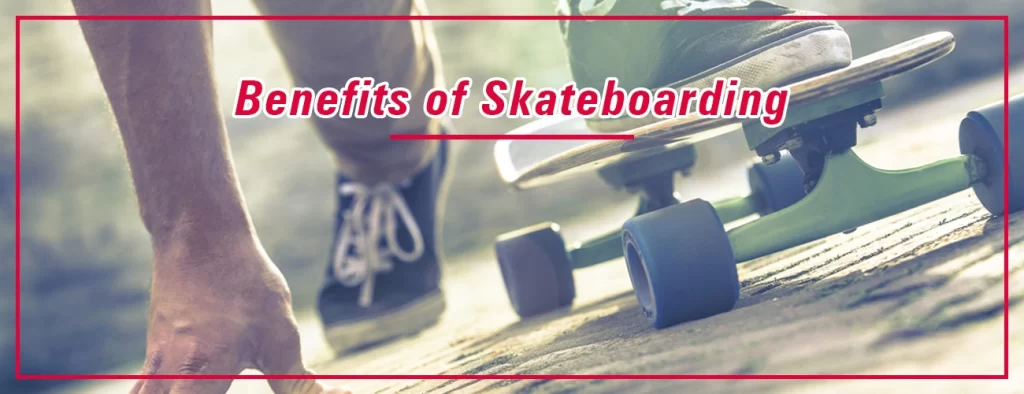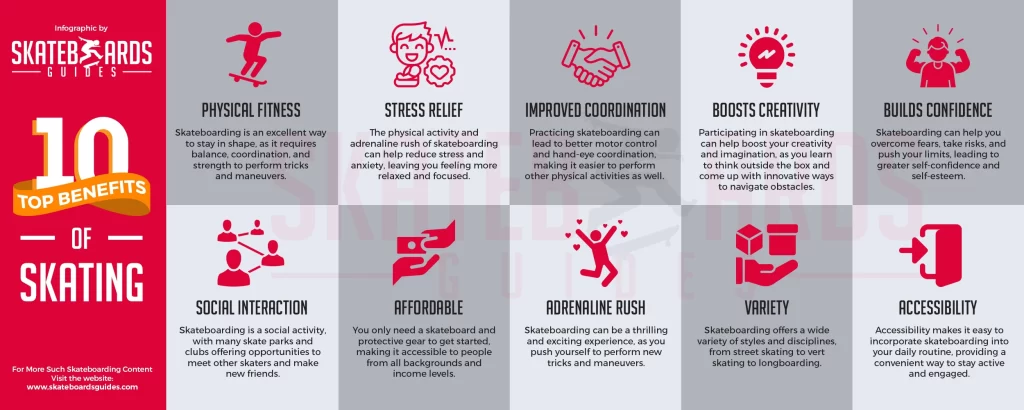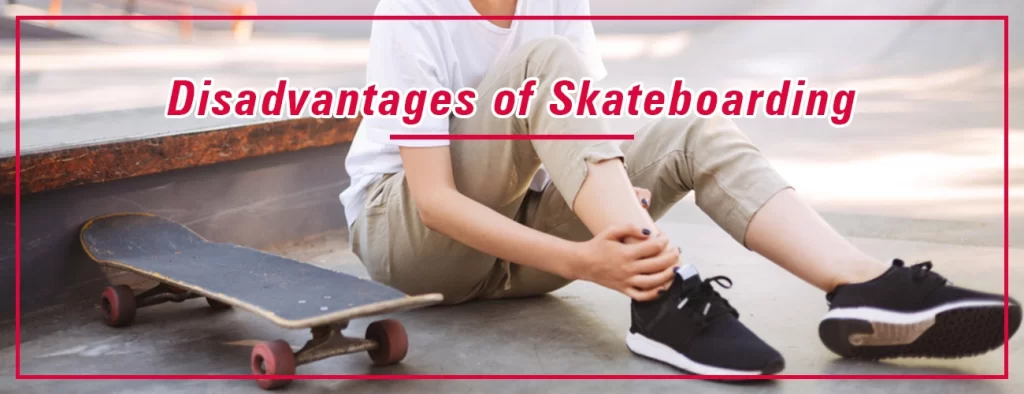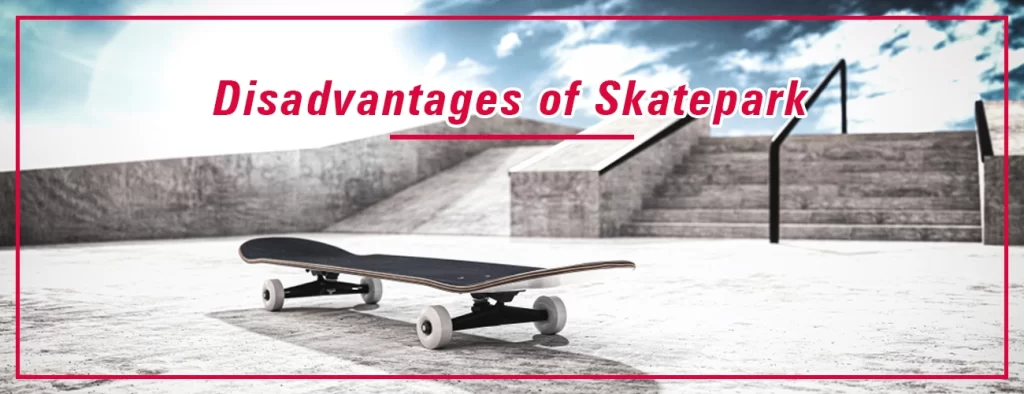Skateboarding has become a popular sport and hobby around the world, enjoyed by people of all ages and skill levels. With its roots in surfing and street culture, skateboarding has evolved into a unique and challenging activity that offers a range of physical and mental benefits. However, like any sport or activity, skateboarding also has its downsides and risks that should be considered before taking up the sport.
In this article, we will explore the benefits and disadvantages of skateboarding, providing a comprehensive look at the many ways this sport can impact your physical health, mental well-being, and social life. We will weigh the advantages of skateboarding, such as the sense of freedom and creativity it provides, against the potential risks, including the potential for injury and negative stereotypes. By the end of this article, you will have a better understanding of the pros and cons of skateboarding, and whether it may be a good fit for you.
Benefits of Skateboarding

There are numerous benefits of skateboarding including health and social benefits. No doubt it is a fun healthy activity to do. And yeah, skating can be enjoyed at any age no matter if you are a kid or a grown-up. Let’s check out these amazing benefits of skateboarding first.
1. Physical Fitness
Skateboarding is an excellent way to stay in shape, as it requires balance, coordination, and strength to perform tricks and maneuvers. Regular skateboarding can help improve cardiovascular health, muscle tone, and overall fitness levels.
2. Stress Relief
Skateboarding can be a great stress reliever, providing an outlet for pent-up energy and frustration. The physical activity and adrenaline rush of skateboarding can help reduce stress and anxiety, leaving you feeling more relaxed and focused.
3. Improved Coordination
Skateboarding requires a high degree of balance and coordination, which can help improve these skills over time. Practicing skateboarding can lead to better motor control and hand-eye coordination, making it easier to perform other physical activities as well.
4. Boosts Creativity
Skateboarding is a highly creative activity, with skaters constantly inventing new tricks and maneuvers. Participating in skateboarding can help boost your creativity and imagination, as you learn to think outside the box and come up with innovative ways to navigate obstacles.
5. Builds Confidence
Learning to skateboard takes time and practice, but once you master a trick or maneuver, it can be a great confidence booster. Skateboarding can help you overcome fears, take risks, and push your limits, leading to greater self-confidence and self-esteem.
6. Social Interaction
Skateboarding is a social activity, with many skate parks and clubs offering opportunities to meet other skaters and make new friends. Participating in skateboarding can help improve your social skills and expand your social circle.
7. Affordable
Compared to other sports and activities, skateboarding is relatively inexpensive. You only need a skateboard and protective gear to get started, making it accessible to people from all backgrounds and income levels.
8. Adrenaline Rush
Skateboarding can be a thrilling and exciting experience, as you push yourself to perform new tricks and maneuvers. The adrenaline rush of skateboarding can provide a natural high, leaving you feeling energized and alive.
9. Variety
Skateboarding offers a wide variety of styles and disciplines, from street skating to vert skating to longboarding. With so many options available, there’s always something new to try and learn.
10. Accessibility
Skateboarding can be done almost anywhere, from skate parks to city streets to empty parking lots. This accessibility makes it easy to incorporate skateboarding into your daily routine, providing a convenient way to stay active and engaged.
In case you are a beginner, here are the Best Skateboards For Beginners available on the market.

Disadvantages of Skateboarding

Just like any sport, skateboarding has got some cons as well. But these risks can be avoided but taking safety measures when skating and learning from a mentor and proper instructions. Let’s read some of the cons of skateboarding.
1. Risk of Injury
Skateboarding carries a significant risk of injury, with falls and collisions being the most common causes. Injuries can range from minor cuts and bruises to more serious sprains, fractures, and head injuries.
2. Cost of Gear
While skateboarding itself may be relatively affordable, the cost of protective gear can add up quickly. Skaters should invest in high-quality helmets, pads, and shoes to ensure their safety, which can be a financial barrier for some. Check out the best Skateboard Knee Pads available on the market.
3. Weather-Dependent
Skateboarding is often weather-dependent, with rain, snow, and extreme heat limiting the ability to skate outdoors. This can make it challenging to maintain a regular practice schedule, especially for those who live in areas with unpredictable weather. Water can damage your skateboard deck and decrease its lifespan.
4. Limited Accessibility
While skateboarding can be done almost anywhere, some areas may be off-limits due to local laws and regulations, or a lack of suitable skate facilities. This can limit the opportunities for skaters to practice and improve their skills.
5. Negative Stereotypes
Skateboarding has historically been associated with rebellion and counterculture, leading to negative stereotypes and misconceptions. Some people may view skaters as troublemakers or delinquents, which can create social barriers and stigmatization.
6. Vandalism
Skateboarding can cause damage to public and private property, such as benches, rails, and ledges. Skaters should always seek permission to skate in public areas and be respectful of their surroundings to avoid contributing to vandalism.
7. Time Consuming
Skateboarding requires a significant amount of time and practice to master, which can be challenging for those with busy schedules or competing interests. It may also take time to find a suitable skate community or practice location, further limiting the time available for skating.
8. Aging
As skaters age, the risks associated with skateboarding can increase, as the body becomes less flexible and resilient. Older skaters may need to adapt their practice style or limit their activity to avoid injury.
Disadvantages of Having a Skatepark

- Safety Concerns
Skateparks can pose a risk of injuries due to the nature of wheeled sports, leading to potential accidents and mishaps, especially in unsupervised environments.
- Cost and Maintenance
Building and maintaining skateparks require significant financial investment, and ongoing upkeep can be burdensome for local authorities or private owners.
- Public Perception and NIMBYism
Negative stereotypes about skateboarders and resistance from some community members (NIMBY – Not In My Backyard) can hinder the establishment of skateparks in certain areas.
- Environmental Impact
Skatepark construction materials and land allocation may have environmental implications, potentially conflicting with conservation or other recreational needs.
- Accessibility Issues
Not all communities have easy access to skateparks, limiting opportunities for interested individuals to engage in wheeled sports and enjoy the benefits they offer.
FAQs
What kind of protective gear is required for skateboarding?
Skaters should always wear a helmet, as well as protective pads for the knees, elbows, and wrists. High-quality shoes with good traction are also recommended.
Can skateboarding be learned at any age?
Yes, skateboarding can be learned at any age, but older skaters may need to take extra precautions to avoid injury.
Do I need to go to a skate park to practice skateboarding?
No, skateboarding can be done almost anywhere, from sidewalks to empty parking lots. However, skate parks can offer a safer and more supportive environment for skaters to practice and connect with other skaters.
Is skateboarding safe for children?
Skateboarding can be safe for children if they wear proper protective gear and are supervised by an experienced adult. Children should also start with basic maneuvers and gradually work up to more advanced tricks as they gain skill and confidence.
Conclusion
In conclusion, skateboarding offers many benefits, including physical fitness, stress relief, creativity, and social interaction. However, it also carries risks and downsides, such as the potential for injury, the cost of gear, and negative stereotypes. Skaters should always prioritize safety and respect for their surroundings, while also enjoying the many rewards of this exciting and challenging activity.
